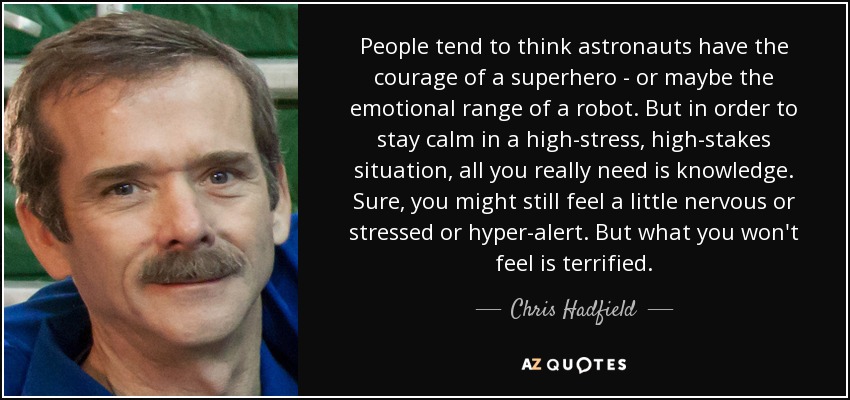This week, Wayne Hale (former Space Shuttle Program Manager) spoke to our HR Team and served as part of a panel of speakers on “Lessons Learned from Columbia and the Space Shuttle’s Return-to-Flight.” For those of us who worked at NASA in Houston, February 1st of 2003 marked a death in the family—as we lost 7 national heroes. The Astronauts are the first to say that they know the dangers involved but believe the benefits of human space exploration outweigh the risks. That’s the definition of courage, as explained above by Astronaut Chris Hadfield.
While we honor the courage of fallen astronauts and the risks they assumed, we should also pause to reflect on what kind of courage it will take to go where no man has gone before, as we continue to shoot for the stars.
John Maxwell’s Leadership Bible describes Courage as the 6th (of 21) Quality of a Leader. As Eleanor Roosevelt put it, “You gain strength, courage, and confidence by every experience in which you really stop to look fear in the face. You are able to say to yourself, ‘I lived through this horror. I can take the next thing that comes along.’ You must do the thing you cannot do.”
Click here to learn lessons on Courage from Elijah and Saul.

